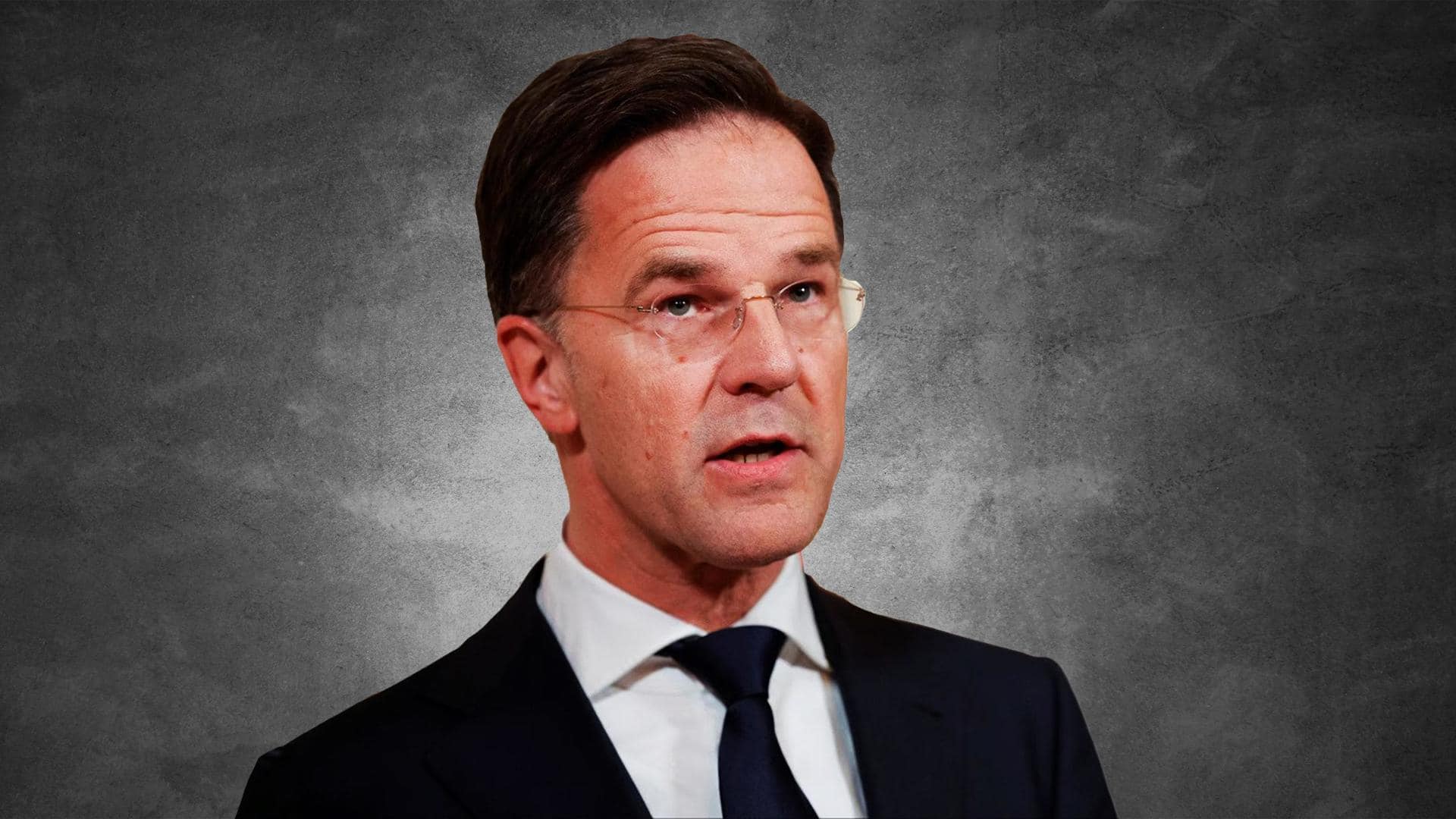
Netherlands: Government collapses following dispute over immigration policy
What's the story
The Dutch government collapsed on Friday after failing to achieve a unified resolution on migration policy owing to serious differences between the ruling coalition parties. Prime Minister Mark Rutte also announced his resignation on Friday (local time), implying a general election later this year. According to reports, Rutte and his cabinet will serve as a caretaker government until a new government is formed.
Context
Why does this story matter?
The Netherlands has one of the most stringent immigration regulations in Europe. Nonetheless, under criticism from right-wing groups, Rutte reportedly sought more measures to curb the influx of asylum seekers further. The coalition government has been trying to reach an agreement for months, discussing various parameters and whether to create classes of asylum: temporary for those escaping violence and permanent for persons fleeing persecution.
Statement
'Irreconcilable' differences exist within government on migration: PM Rutte
Addressing the media in The Hague, Rutte said on Friday, "It is no secret that the coalition partners have very different views on migration policy." "And today, unfortunately, we have to draw the conclusion that those differences are irreconcilable. That is why I will immediately...offer the resignation of the entire cabinet to the king in writing," he added.
Details
Meeting of coalition failed to reach agreement
According to reports, the four-party ruling coalition failed to reach an agreement on migration policy during late-night meetings presided over by Rutte on Wednesday and Thursday. This further deepens the ideological differences that have existed since the coalition's formation over 18 months ago. Meanwhile, the leader of the Green Left, Jesse Klaver, called for elections, stating, "This country needs a change of direction."
Twitter Post
'Quick election': Geert Wilders, chief of anti-immigration Party for Freedom
Kabinet gevallen.
— Geert Wilders (@geertwilderspvv) July 7, 2023
Kamerdebat maandag uiterlijk dinsdag aangevraagd.
Snel verkiezingen nu.
Adieu Rutte, Kaag en de rest!#Crisis #nieuweverkiezingen
Information
Differences led to two factions in coalition
Due to the differences in opinion, the coalition government was divided into two factions. The D66 and fellow centrist party ChristenUnie or Christian Union opposed more immigration controls, whereas Rutte's conservative People's Party for Freedom and Democracy and the Christian Democrats supported the same.
About
Growing migration issues in Netherlands
Migration emerged as a major issue in Europe, particularly ahead of the upcoming European Union parliament elections next year. Meanwhile, the Netherlands is currently facing the problem of dealing with a massive inflow of refugees from Ukraine, with around 21,500 persons from outside Europe reportedly seeking asylum in 2022. This has burdened the country's already scarce housing capacity and triggered a political storm.